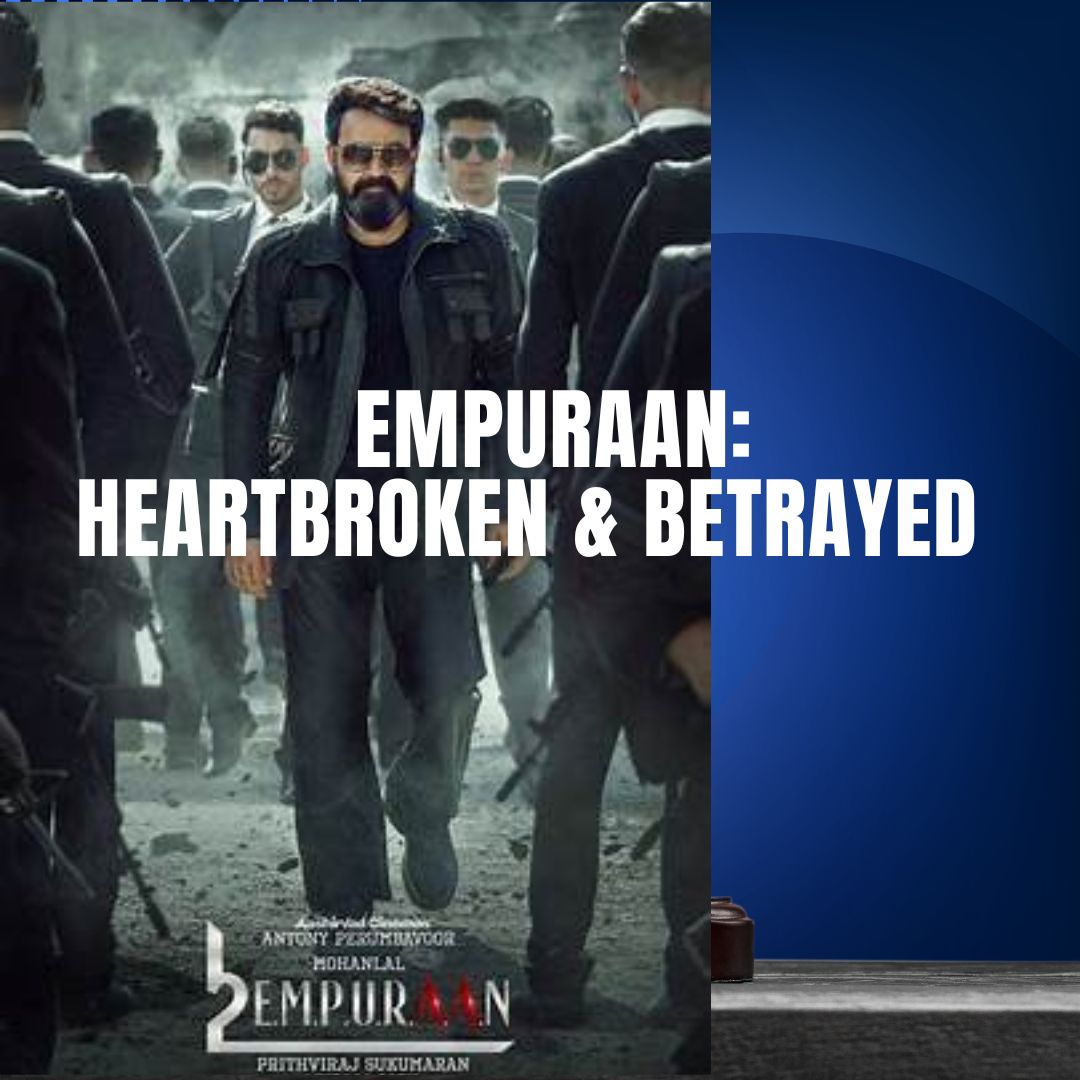The Day My Heart Broke at the Theatre: A Fan’s Betrayal by ‘Empuraan’

Introduction:
For decades, Mohanlal has been more than just a superstar—he has been an emotion. His films have shaped our childhood, strengthened our cultural pride, and reinforced our identity as Malayalis and as Hindus. But on March 27th, something shattered. Something that no loyal Mohanlal fan ever expected.
Walking into the theatre, the excitement was electric. The legendary ‘Empuraan’ was finally here. But within minutes, that excitement turned to shock, and by the time I walked out, I carried a heartbreak I never imagined.
Key Takeaways from ‘Empuraan’
The film begins with a disclaimer: “All characters and incidents are fictional.” Yet, it quickly portrays a brutal scene from 2002—a Muslim village burned down, a child beaten to death by a Hindu man.
Hindu men, depicted as oppressors, turn into monsters in moments of chaos.
A Hindu man rapes a pregnant Muslim woman—an emotionally gut-wrenching moment with deep ideological implications.
A major political party merging with a pro-Hindu one is portrayed as a disaster for Kerala.
A pro-Hindu leader villainizes the country’s 600 km coastline as a hub for drug smuggling.
Mohanlal, a legend who has long been seen as politically neutral, participates in a narrative that demonizes the very people who have uplifted him.
Deep Dive & Analysis:
A Dangerous Trend
The Indian film industry has always been a reflection of society. But of late, there’s been an increasing tilt—one that carefully crafts narratives to vilify certain communities while glorifying others. ‘Empuraan’ isn’t just a film; it feels like an ideological attack, meticulously designed to send a message.
Expert Opinions: The Rise of Anti-Hindu Narratives in Cinema
Film analysts and cultural critics have long warned about how cinema is being used as a tool to shape public opinion. Bollywood and South Indian cinema have, in many instances, subtly pushed anti-Hindu narratives while whitewashing the crimes of others. When cinema begins to fuel political propaganda, it stops being art and becomes an agenda.
Where Do We Go from Here?
The damage isn’t just cinematic—it’s cultural. When the country’s largest majority is continually portrayed as aggressors, it sets a dangerous precedent. Films shape minds. They create perceptions. And when an entire generation grows up consuming such narratives, the results can be catastrophic.
Why This Matters
Mohanlal wasn’t just an actor for us; he was an institution. His name symbolized trust, respect, and an unspoken bond with his audience. ‘Empuraan’ doesn’t just break that trust—it smashes it into a thousand pieces. More than just entertainment, this is a wake-up call.
How It Impacts Mohanlal’s Audience & Devotees
For those who have idolized him for years, this is a betrayal of the highest order. It isn’t just about a scene or a storyline—it’s about what it represents. Many fans, particularly those who have supported his career from the start, feel let down, disrespected, and abandoned.
A Love Lost Forever?
Loyalty isn’t blind. A true fan supports, but they also question. And today, millions of Mohanlal’s admirers are questioning everything they believed about him. This isn’t just another film boycott; this is the heartbreak of an entire community that once saw him as their own.
Where Do You Stand?
Is this just a film, or is it something bigger? Do you believe that cinema should remain neutral, or do you see a deliberate pattern in films today? Drop your thoughts in the comments, share this article, and let’s start a discussion.
One thing is certain—this conversation isn’t ending anytime soon. And neither is the wound ‘Empuraan’ has left behind.
#Mohanlal #EmpuraanControversy #CinemaAndPolitics #HindusInCinema #BoycottEmpuraan #PrithvirajSukumaran #IndianCinema #PoliticalAgendaInFilms
- Innovate(5)
- Bharat(13)
- Life Hacks(1)
- Global(15)
- Reviews(1)



